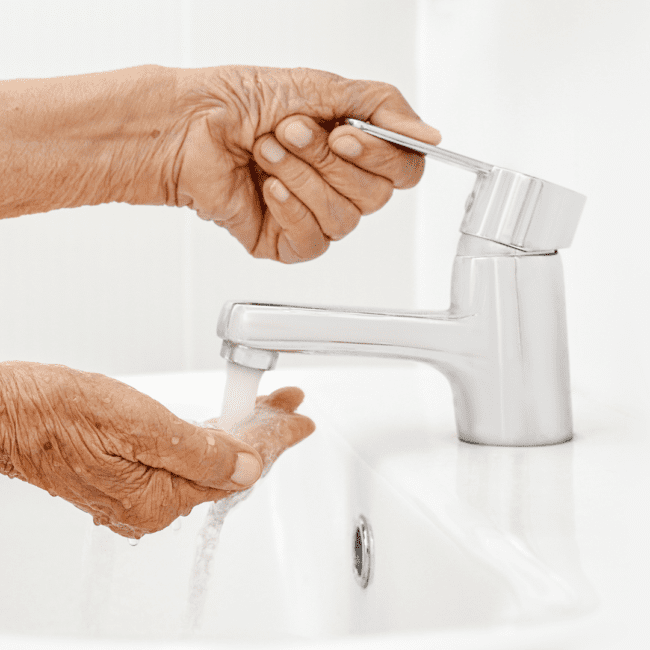Many older adults struggle to get restful sleep at night, facing increasing difficulty with insomnia. Various factors contribute to insomnia in the elderly, including stress, workload, or genetic predisposition. Unfortunately, the number of people affected by this condition is growing. According to research by the Journal of Activity, Sedentary and Sleep Behaviors,37% of older adults in India have been diagnosed withinsomnia.
This disorder can have serious consequences on the health of elderly individuals, affecting both their physical and mental well-being. Recognizing the early signs of insomnia is crucial in preventing further complications and deterioration in their health. Here’s a guide to help identify these early signs and take proactive steps to protect the health of your elderly loved ones.
Understanding Insomnia, Its Types, and Its Impact on the Elderly
Insomnia is a long-term condition where an individual struggles to fall or stay asleep, despite having the opportunity for rest. It is common among elderly individuals due to changes in their routine, medication, and behavior as they age.
People with insomnia often experience excessive daytime sleepiness and cognitive impairments. Some may have difficulty falling asleep initially (sleep onset insomnia), while others may struggle with maintaining sleep throughout the night (sleep maintenance insomnia).
Types of Insomnia That Affect Elderly People
Insomnia can manifest in different forms among older adults. Here are the most common types:
- Acute Insomnia: Caused by stress or major life changes, such as retirement or the loss of a loved one. It may last anywhere from a few days to several weeks.
- Chronic Insomnia: Persistent sleep problems occurring at least three times per week over a prolonged period, ranging from months to years.
- Onset Insomnia: Difficulty falling asleep, often accompanied by anxiety or stress that worsens at bedtime.
Impact of Insomnia on Elderly Health
When elderly individuals struggle with insomnia, it can have significant negative effects on their mental and physical health. Here are some of the key consequences:
- Reduced Sleep: Persistent lack of restorative sleep can cause chronic fatigue, reducing their ability to perform daily activities.
- Cognitive Decline: Inadequate sleep weakens memory and concentration, increasing the risk of dementia and Alzheimer’s disease.
- Higher Risk of Depression: Insomnia disrupts brain function, making elderly individuals more prone to mood disorders like depression and anxiety.
- Weakened Immune System: Lack of proper sleep can impair immune function, making it harder for the body to fend off infections and illnesses.
Early Signs of Insomnia in Elderly Individuals
Recognizing insomnia early allows for effective intervention and prevention of more severe health issues. Here are five early warning signs that insomnia may be affecting your elderly loved ones:
Worried about your Elderly parents back home?
Call us today to arrange Care Like Son and Daughter™.
- Difficulty Falling Asleep: If it takes more than 30 minutes for your elderly parents to fall asleep, it could be a sign of developing insomnia.
- Frequent Night Awakenings: Waking up multiple times throughout the night due to discomfort, bathroom visits, or instability in sleep is a common insomnia symptom.
- Daytime Fatigue and Drowsiness: Feeling excessively tired during the day and struggling to wake up in the morning can indicate poor sleep quality at night.
- Mood Changes, Depression, and Anxiety: Lack of sleep can cause irritability, anxiety, and depressive symptoms, which should raise concerns about their sleep habits.
- Increased Forgetfulness and Mistakes: Insomnia can lead to cognitive decline, manifesting as frequent forgetfulness or errors in daily tasks.
Serious Causes of Insomnia in Elderly People
Elderly individuals often experience insomnia due to underlying health issues or lifestyle changes. Here are some common causes:
- Increased Stress and Anxiety: Aging comes with major life transitions—retirement, financial struggles, and loss of loved ones—that can elevate stress and anxiety levels, making it harder to sleep.
- Chronic Pain and Medical Conditions: Conditions like arthritis, osteoporosis, and GERD can cause discomfort, leading to frequent waking during the night.
- Neurological Disorders (e.g., Dementia and Alzheimer’s Disease): Sleep-wake cycles are disrupted in individuals with these conditions, leading to confusion and restlessness, especially at night.
- Changes in Sleep Cycle Due to Aging: Reduced melatonin production with age can lead to fragmented sleep and reduced sleep intensity, making it harder for elderly individuals to achieve restorative rest.
- Lack of Physical Activity: A sedentary lifestyle can reduce the body’s need for sleep, making it more difficult for older adults to fall asleep and stay asleep.
Practical Tips for Managing Insomnia in Elderly Parents
If you want to help your elderly parents overcome insomnia naturally, consider these practical tips:
- Encourage Good Sleep Hygiene: Establish regular sleep and wake-up times to regulate their sleep cycle. A soothing bedtime routine, such as reading or listening to calming music, can help improve sleep quality.
- Focus on Mental Health: Help elderly individuals engage in relaxing activities like deep breathing, meditation, or yoga to manage anxiety and stress. Therapy or counseling can also address underlying mental health issues.
- Promote a Healthy Diet: A diet rich in magnesium and melatonin can help promote better sleep. Incorporate foods like almonds, cherries, and bananas into their diet.
- Consider Sleep Medications Cautiously: Before using sleep aids, consult a healthcare provider, as over-the-counter sleep medications may not be suitable for elderly individuals.
- Increase Physical Activity: Encourage regular walking or stretching exercises to improve sleep quality, but avoid vigorous exercise close to bedtime.
How to Support Elderly Parents During Insomnia Treatment
During the treatment process, it’s essential to provide support through lifestyle changes and emotional care. Here are some tips for assisting elderly individuals with insomnia:
- Manage Medications Properly: Monitor their medication intake and consult with a doctor to ensure they are taking the correct dosage, especially since certain medications may have sleep-related side effects.
- Encourage a Healthy Diet: Avoid caffeine, alcohol, and heavy meals before bedtime. Opt for sleep-friendly foods like hot milk, bananas, and almonds.
- Create a Sleep-Friendly Environment: A quiet, comfortable sleep environment is essential for improving sleep quality. Consider dim lighting, blackout curtains, and comfortable bedding.
- Establish a Relaxing Bedtime Routine: Help your elderly loved ones unwind by engaging in calming activities such as reading, stretching, or listening to soft music before bed.
- Seek Professional Support: If insomnia persists, consider consulting a sleep therapist or geriatrician for specialized care. Professional caregivers can also provide valuable assistance in ensuring proper sleep practices.
Conclusion
Properly diagnosing and treating insomnia in elderly individuals is vital for maintaining their overall health. Identifying early signs of sleep disturbances and seeking the right treatment options can prevent more severe health complications. By improving sleep habits, managing underlying conditions, and providing emotional and physical support, you can help your elderly parents enjoy better sleep and improved well-being. When needed, professional help should be sought to ensure the best outcomes for their health.







